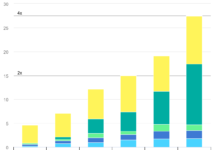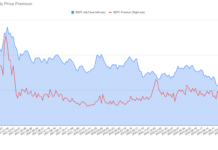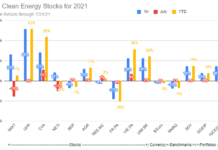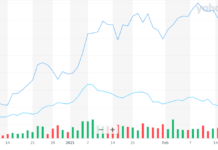Doug Young
![400px-King_vulture_portrait[1].jpg](http://www.altenergystocks.com/wp-content/uploads/2017/08/400px_King_vulture_portrait_1_.jpg) King Vulture Sarcoramphus papa. Photo by Hein waschefort via Wikimedia Commons. |
New reports that major car maker Dongfeng Motor (HKEx: 489) is bidding to buy a struggling US hybrid car maker are casting a spotlight on China’s emerging role as scavenger for global new energy companies struggling to stay in business. A number of factors are driving this budding trend, led by the fact that many of these Chinese suitors are relatively cash rich and in a good position to provide much-needed funds for cash-starved western new energy firms.
What’s more Chinese firms in general love a bargain when they shop for global assets. Then there’s also the technology factor, as many of these Chinese buyers are hoping to bring some of the technology they get from their purchases to their operations back home. Lastly there’s also the Beijing factor, as many of these buyers are making such purchases to show their commitment to developing new energy technologies, a top priority for the central government. Of course, the only problem in all of this is that most of these factors have little or no foundation in running a commercially viable business, meaning many of these purchases are ultimately likely to result in headaches and quite possibly failure for their buyers.
But now that I’ve said all that, let’s take a look at the latest headlines, which say that Dongfeng is one of several potential bidders for Fisker Automotive, a US maker of high-end hybrid cars. (English article) Dongfeng’s bid would see it pay about $350 million for 85 percent of Fisker, whose luxury hybrid cars sell for more than $100,000 each. Fisker was forced to halt production of its Karma model car last year after one of its key suppliers declared bankruptcy, but has said more recently that it plans to restart production soon.
According to the reports, Fisker will face its own cash crunch around the middle of this year if it doesn’t find a new big investor by then. If Dongfeng succeeds in buying the stake, it could eventually move some of Fisker’s production to China a common strategy by Chinese buyers who often think they can fix troubled western companies simply by moving their manufacturing operations to China.
This latest deal follows a series of similar recent Chinese purchases of struggling western new energy firms over the last year. The latest of those deals saw China’s Wanxiang Group recently win approval to purchase most of the assets of bankrupt high-tech battery maker A123 Systems. (previous post) That deal previously faced some uncertainty due to national security concerns, but the US government ultimately approved the transaction last month.
Last year also saw a number of Chinese companies make global acquisitions in the solar panel sector, which has been struggling for the last 2 years due to a massive supply glut. Chinese firms Hanergy Holding Group reached a deal last fall to buy struggling Silicon Valley company MiaSole for a bargain price. (previous post) Hanergy also made an acquisition in Germany, buying a unit of QCells for about $500 million. Other deals saw LDK Solar (NYSE: LDK) buy 33 percent of Germany’s Sunways AG last year, and TFG Radiant Group buy a 41 percent stake in US firm Ascent Solar Technologies (ASTI) in 2011.
This latest Dongfeng bid for Fisker shows the Chinese appetite for western new energy firms is still strong, and could even accelerate in 2013 for many of the reasons that I described above. These kinds of deals are important in one sense, because they will help to drive consolidation in crowded sectors like solar panels that are suffering from overcapacity.
But as I’ve already said, I do believe that many of these purchases are destined for difficulties and failure because the Chinese companies lack the resources and experience to turn around the troubled assets they are buying. From a broader perspective, look for more of these purchases in the next 2 years by bargain-seeking Chinese companies, followed by the first signs of trouble for many of these acquisitions starting by the end of this year or even sooner.
Bottom line: Dongfeng Motor’s purchase of a struggling US hybrid automaker reflects China’s growing appetite for western new energy firms, which is likely to accelerate this year.
Doug Young has lived and worked in China for 15 years, much of that as a journalist for Reuters, writing about publicly listed Chinese companies. He currently lives in Shanghai where he teaches financial journalism at a leading local university. He also writes daily on his blog, Young’s China Business Blog, commenting on the latest developments at Chinese companies listed in the US, China and Hong Kong. He is also the author of an upcoming book about the media in China, The Party Line: How The Media Dictates Public Opinion in Modern China .








